#da giacomo
Photo
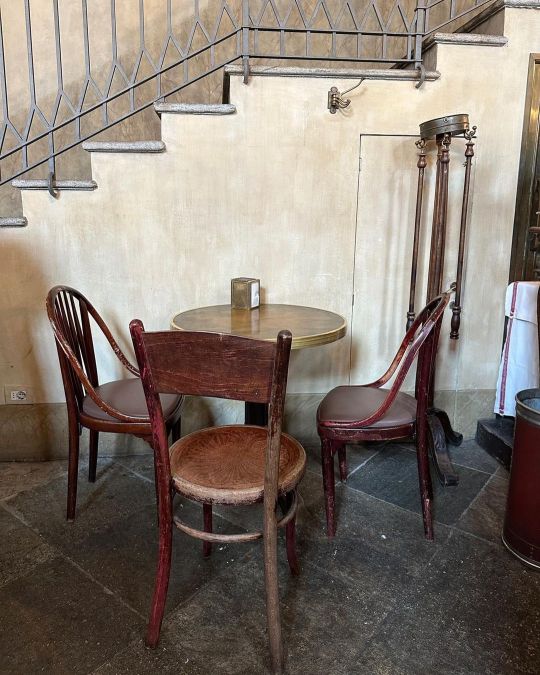
vibiskuss
2K notes
·
View notes
Text

Oddio degli infanti
7 notes
·
View notes
Text
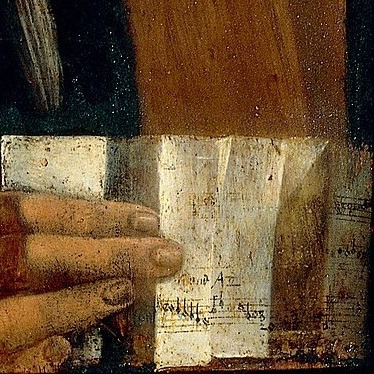
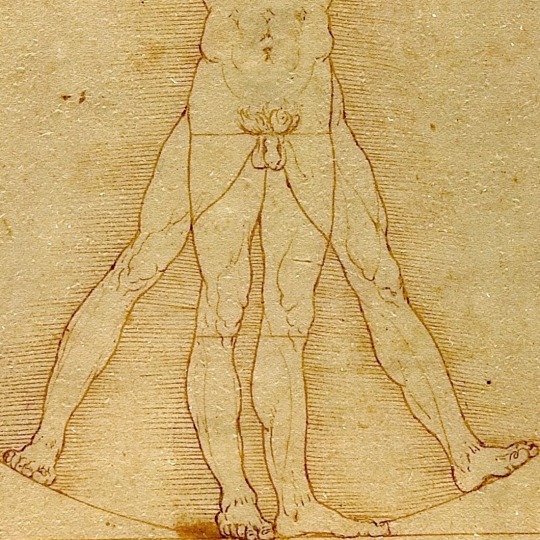

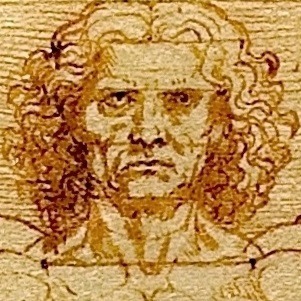



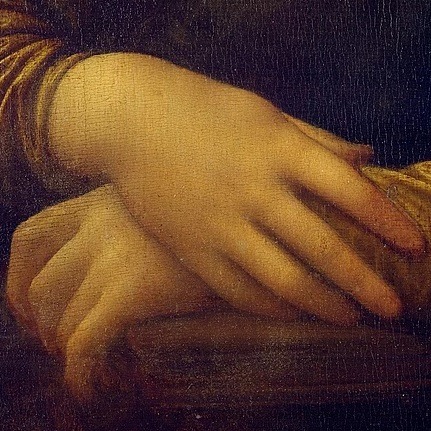
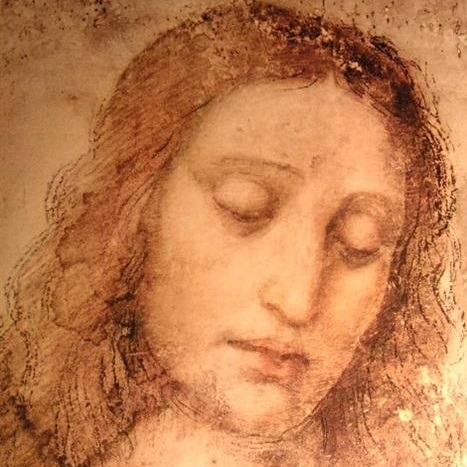
Andrea Salaì (1480-1524), nicknamed "The Little Devil" for his troublesome nature. Apprentice, muse, and lover to Leonardo da Vinci. May or may not have been the model for the Mona Lisa.
"a graceful and beautiful youth with curly hair, in which Leonardo greatly delighted" ~ Giorgio Vasari
3 notes
·
View notes
Text
Giacomo Leopardi (Lo zibaldone)
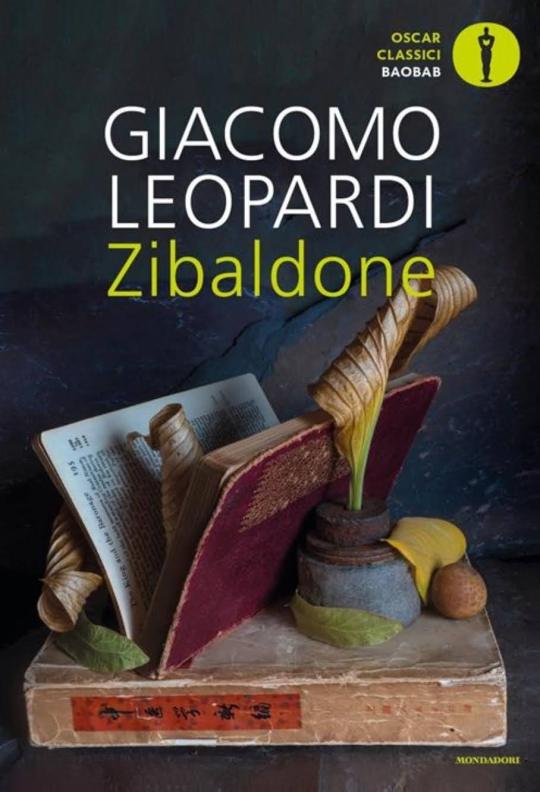
E in fine può anche derivare, e penso che almeno in parte derivi dallo stesso timore che abbiamo di quel pensiero, per la ragione che in tutte le cose fisiche e morali, il voler troppo intensamente e il timore di non conseguire, distorna le nostre azioni dal loro fine, e il mettersi ad un'operazione di mano p. e. chirurgica con troppa intenzion d'animo e timore di non riuscire, la manda a male, e nelle lettere, o belle arti, il cercar la semplicità con troppa cura, e paura di non trovarla, la fa perdere ec.
L'orrore e il timore della fatalità e del destino si trova più (anche oggidì che la superstizione è quasi bandita dal mondo) nelle anime forti e grandi, che nelle mediocri per cagione che i desideri e i fini di quelle sono fissi, e ch'elle li seguono con ardore, con costanza, e risoluzione invariabile. Così era più ordinariamente presso gli antichi, appo i quali la fermezza e la costanza e la forza e la magnanimità erano virtù molto più ordinarie che fra i moderni. E vedendo essi che spesse volte anzi frequentissimamente i casi della vita si oppongono ai desideri dell'uomo, erano compresi da terrore per la ragione della loro immobilità nel desiderare o nel diriggere
le loro azioni a quel tale scopo che forse e probabilmente non avrebbero potuto conseguire. Infatti nella infinita varietà dei casi è molto più improbabile che segua precisamente quello a cui tu miri invariabilmente, che gl'infiniti altri possibili. Ora accadendone piuttosto un altro non è effetto di destino fisso che ti perseguiti, ma di cieco accidente.¹ Essi tuttavia com'è naturale come per un'illusione ottica o meccanica confondevano (e gli animi forti ed ardenti tuttora confondono) l'immobilità loro propria con quella degli avvenimenti, e perchè non erano spiriti da secondarli e adattarvisi, immaginavano che l'immobilità stesse non in se ma nei medesimi avvenimenti già stabiliti dal destino. Laddove gli spiriti mediocri, senza fermezza nè certezza di mire, nella moltiplicità dei loro fini, e si abbattono più facilmente a uno o più di quelli che desiderano, e anche nel caso opposto cedono senza difficoltà all'andamento delle cose, e da questo si lasciano trasportare, piegare, regolare, andando a seconda degli avvenimenti. Così essi non avendo immobilità in loro, nè vedendo la somma difficoltà di concordare i loro disegni cogli avvenimenti hanno l'intelletto più libero, e non pensano che la fortuna opponga loro un'opposizione forte e stabile, (la qual forza e stabilità non è veramente se non nella resistenza che le anime grandi oppongono agl'instabilissimi e casuali avvenimenti) ma considerano tutto come effetto del caso, e delle combinazioni, siccom'è infatti: Aggiungi l'invariabilità non solo dei fini, ma anche dei mezzi nei primi, (cioè né magnanimi) che non permette loro di cambiar principii, nè di regolare le loro azioni a norma degli avvenimenti, ma li conserva sempre costanti nel loro proposito e nel modo di seguitarlo, mentre il contrario accade nei secondi. E anche senza nessun proposito nè scopo, si vedrà che la sola fermezza e immutabilità del carattere, fa illusione sulla forza del destino ch'essendo così vario pare immutabile a quelli che non vedono se non una sola via, una sola maniera di contenersi di pensare e operare, una sola sorta di avvenimenti, e come questi dovrebbero o pare a loro che dovrebbero accadere. E questo timore del destino si trova in conseguenza più o meno anche negli spiriti mediocri, o puramente ragionevoli e filosofici ec. quando provano qual-
che desiderio o mirano a qualche fine in modo che divengano immobili intorno a quel punto.
Prima uscita: 1898
Editore: Mondadori
Pagine: 2032
5 notes
·
View notes
Text
Hate my Leonardo da Vinci obsession.
I went to wikipedia to find a specific crude sketch from Leonardo's journals to make a meme and suddenly I found my way into Salai's italian wikipedia article and now I'm going the rabbit hole about Luigi Pulci's Il Morgante to confirm a footnote in Walter Isaacson's biography of Leonardo da Vinci. According to it, Salai's (who was Leonardo's apprentice/servant/model/lover depending on your opinion) nickname (his real name was Gian Giacomo Caprotti, and he used alias Andrea Salai sometimes) means "little devil" and the term "salai" is derivative from Tuscan dialect mening "The devil's foot/leg" (I think the expression was "Il Salaino or something??) , But then he adds that the name comes from a DEMON in the epic Morgante. I took this to mean that there is a demon character in the novel (sometimes I realized as false only later)
(another fact about Salai's name is that sometimes it's spelled as Salaí, so it becomes Sa-la-i, instead of Sa-lai)
A detail I want to point out is that Leonardo had Il Morgante in his library, and it's included in his list of books he owns. So yes it's very possible Leonardo would've taken the name from there.
The funny this is that I have already went down this rabbit hole like year prior, but it ended abruptly without conclusion because I'm that type if person who starts something and then abandons it.
HOWEVER what I did find last time was that the only named demon character I've been able to find is Astarotte. So I was growing skeptical about the "salai's nickname comes from Il Morgnte" as a whole. No matter where I looked, there was no mention of a character named Salai.
But then after like.... Months into this thing plaquing me, and "researching" it on and off, I found this:
XXI 47 7 (Canto Ventunesimo)

I don't speak italian besides individual words so obviously I had no idea what the context was. However, at this point I realized to check my university library for any edition of Il Morgnte, and I managed to find a very fancy Italian edition. However I was bumped when I google translated the paragraph and it seemed that Salai did not refer to any particular character in the novel, rather, it's just a comparison "as does Salai in the fall" I guess there is a Salai named demon in the epic but like .. it's not a character technically.

TODAY i digged up these again because I was reminded of this, and saw that there was a footnore about "salay" in this page I had taken a picture of like over a year ago. Before the footnote had gone unnoticed for me, oh the regret is hitting...
According to machine translation that footnote 7. Explains that Salay refers to "other infernal power" and fallen angels (so demons at least)
WHICH IS FUNNY because I started to go down this rabit hole again because the Italian wikipedia article of Salai also mentions Salai's name coming from Il Morgante, but there it's said that: "the expression is used to evoke an infernal power" (Nell'opera L'espressione è impiegata oer evocare una potenza infernale)
So um.... I've wasted many hours of my finite life to confirm this little nuget of information. Idk where I'm going anymore.
Thanks for reading about my decent into insanity I guess
If any Italian speakers have anything they'd like to add or point out, please tell me!
6 notes
·
View notes
Text

gioconda nuda (monna vanna)
artwork by salai (gian giacomo caprotti)
4 notes
·
View notes
Photo









Salaì, Leonardo (S1, E4)
150x150 pixels gifs. Free to use.
#carlos cuevas#salaì#gian giacomo caprotti da oreno#leonardo#television#spanish fc#icons#resources#gifs#rp resources#gifset
17 notes
·
View notes
Text
I FORGOT TO POST THIS HERE YESTERDAY
I don’t write as often as I would like to, but yesterday, July 22nd was an important day for me as a fan of Leonardo da Vinci. It’s when his apprentice Salaì entered his workshop. So I wrote a fanfic about it.
(It’s technically Assassin’s Creed fanfic, since Ezio is the protagonist but, y’know.)
#Assassin’s Creed#Leonardo da Vinci#Salaì#Historical RPF#Gian Giacomo Caprotti#Il Salaino#found family#very slight ezioleo
2 notes
·
View notes
Text
Not Diamond, Nor Emerald, Nor Sapphire, Nor any Precious stone;
Topaz Nor Hyacinth Nor Ruby, Nor the Heliotrope, which certainly has much virtue;
Nor the Amethyst, or the fine Carbuncle, that most resplendent thing,
Possess the beauty of my beloved.
-Giacomo da Lentini (thirteenth century)
2 notes
·
View notes
Text
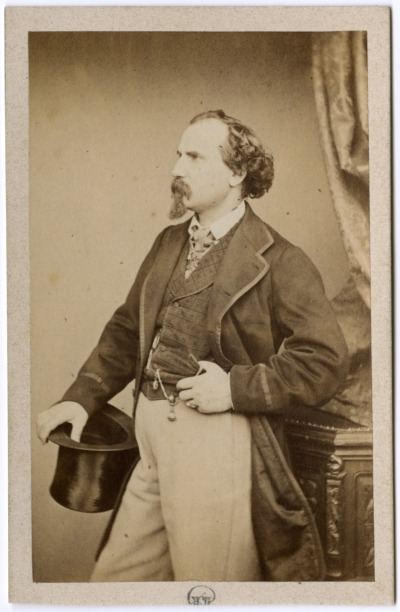
Emilio Naudin (1823-1890) had a french name but was born in Parma, the son of the court painter of the Grande-Duchesse Maria Luisa di Borbone. He had an international career based mainly in Paris, London and Madrid. On April 28, 1865 at the Paris Opéra he sang Vasco De Gama in the world prémiere of Giacomo Meyerbeer's last and posthumous opera, "L'Africaine".
Meyerbeer himself had stated in his will that the Opéra would have given Naudin the role, otherwise it wouldn't be allowed to perform the score.
Here he is in a nice portrait of the Atelier Erwin.
#Emilio Naudin#tenor#Giacomo Meyerbeer#Meyerbeer#Royal Opera House#Covent Garden#Verdi#Wolfgang Amadeus Mozart#Mozart#Paris Opera#Wagner#Vasco da Gama#Opéra national de Paris#Opéra de Paris#Opéra-Comique#photography#portrait#classical music#music history#opera#bel canto#opera singer#classical singer#classical singing#classical studies
2 notes
·
View notes
Text
Giacomo da Balduina, una giovane vita per la Confessione
Ordinato sacerdote nel 1929, per sedici anni amministra il sacramento della Penitenza accogliendo i fedeli con paterna bontà e irradiando pace celestiale intorno a sé, nonostante le gravi sofferenze legate alla sua malattia.
Continue reading Untitled
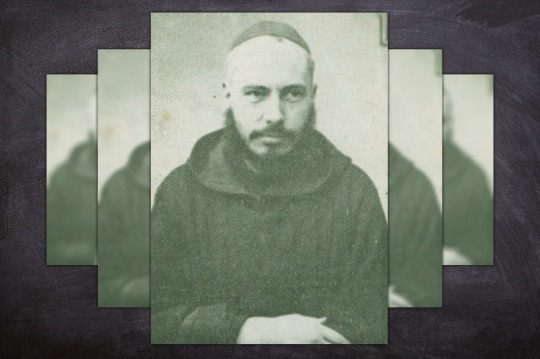
View On WordPress
0 notes
Text
Going crazy over the fact that we might have more information about Salai if more Leonardo's work journals would've survived go present day
Deep sigh
#it's salai posting time again#yes I am still obsessed about him#fuck you leonardo da vinci I can't sleeo because if you#salai#gian giacomo caprotti
6 notes
·
View notes
Text
Il Tempo e le Anime (A mio padre e a mia madre) - Parte quinta
Il Maestro individuò il proprio Discepolo secondo una predestinazione che aveva fatto incontrare lontane esistenze profondamente affini: la freccia scoccata dall’arco colse esattamente il centro del bersaglio perché esso faceva tutt’uno con l’arciere.
L’intima essenza di Riccardo lo indusse a incamminarsi per l’ardua via che avrebbe trasformato un fabbro realizzatore di stufe a legna e carbone…

View On WordPress
#Albrecht Dürer#Alda#Arnold Schönberg#Claude Debussy#Edvard Munch#Gaetano Previati#Giacomo Balla#Johann Sebastian Bach#Kazimir Malevic#Leonardo da Vinci#Luigi Russolo#Nicolas Poussin#Odilon Redon#Paul Klee#Pierre Puvis de Chavannes#Piet Mondrian#Professore#Riccardo#Sandro Botticelli#Wassily Kandinsky
1 note
·
View note
Text
Love is in Da Blog - Feb 19: Che gelida manina! La Bohème #LoIsInDaBl23
Today’s Love is in Da Blog prompt is ‘choose your own‘.
My understanding of the Italian language is limited to a handful of words and a few phrases, but I absolutely love the Italian opera La Bohème, especially the first song Rodolfo sings to Mimi, Che gelida manina!. This is a song of one lonely soul reaching out to another lonely heart. I don’t have to understand every word of the lyrics,…

View On WordPress
1 note
·
View note
Photo









Salaì, Leonardo (S1, E4)
150x150 pixels gifs. Free to use.
#carlos cuevas#salaì#gian giacomo caprotti da oreno#leonardo#television#spanish fc#icons#resources#gifs#rp resources
6 notes
·
View notes
Photo
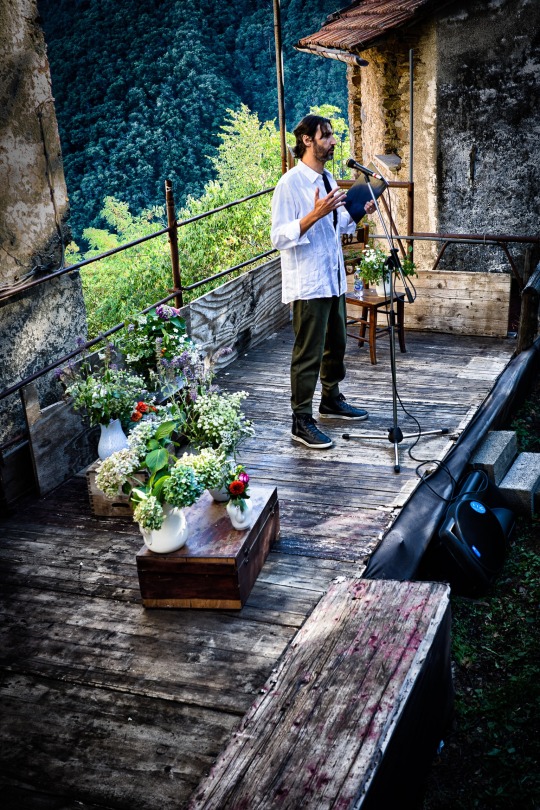
Carcente, frazione del Comune di San Siro (CO), 20 agosto 2022
"L'introvabile pantera dal respiro profumato". Le origini della lingua e della poesia italiana.
Ringrazio ciascuna persona del pubblico per la calorosa partecipazione e l'affetto dimostrato; l'intero gruppo del Museo Casa Rurale di Carcente per l'eccellente organizzazione e la generosa ospitalità; Daniela Bruni per la toccante introduzione; Ernesto Blotto, Giorgio Borroni e Alberto Ferrari per le intense fotografie.
Lapo Lani
_______________
Proprietà della fotografia di copertina: Ernesto Blotto.
#carcente#museo casa rurale di carcente#poesia#virgilio#ovidio#properzio#catullo#andrea cappellano#guglielmo d'aquitania#giacomo da lentini#guittone d'arezzo#brunetto latini#cecco angiolieri#iacopone da todi#guido guinizzelli#guido cavalcanti#dante alighieri#divina commedia#lapo lani
1 note
·
View note